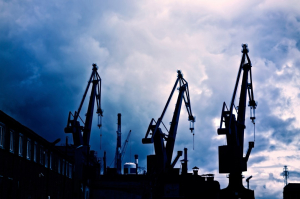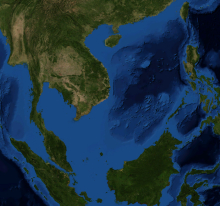Market liberalization and energy security: Promises not always kept
By Nikolaus Loy, a lecturer on international relations at the UPN Veteran University. Yogyakarta
Energy, as a force that can move something else, is a strategic commodity for human life. In its form as oil, coal, natural gas, geothermal, hydropower or otherwise, energy plays an important role in development, social welfare, defense and security. Energy issues have become a concern for the Indonesian public in post-reform era.
Energy security
The term emphasizes the availability of supply at affordable prices. A country can be said to have energy security if there is sufficient supply of oil, gas, coal or other energy at an average level of prices that people can afford.
Daniel Yergin (2006) defines energy security as the availability of energy at affordable prices.
Meanwhile, Ocheltree, as cited by Ciuta (2010), conceptualizes energy security more broadly. He says energy security involves the security of the entire energy supply infrastructure and network. These networks must be safe from terrorist attacks, war, robbery and natural disasters. The security of oil fields, pipelines, energy plants, gas stations and their networks to households ensures continuity of supply.
Indonesia uses the term energy security which includes four aspects: Availability, namely the availability of energy and energy sources located at home or abroad; Accessibility, namely the ability to access energy sources, energy network infrastructure, including geographic and geopolitical challenges; Affordability, namely the ability to finance investment, production, distribution and energy consumption costs; Acceptability, namely the ability to adjust to the carrying capacity of the environment and be socially and culturally accepted (Hikam, 2014). In other words, energy security is a condition in which energy availability is guaranteed, can be purchased by the community and cares about environmental security.
Energy security does not question who and where energy is supplied from. Whether energy is supplied by domestic private companies or foreign companies, by the state or the market, from within or outside the country, is not an important issue. What is chosen is the cheapest and most efficient mechanism for producing and supplying the energy needed. In practice, market mechanisms have been the main choice to ensure a stable, affordable and secure energy supply.
Markets and energy security
The market is considered to fulfil the four criteria of energy security: availability, affordability in terms of location, affordability in terms of cost, and acceptability in terms of environmental, social and cultural aspects.
The activities of energy companies based on the profit motive are able to provide the energy needed in volume and type. The market mechanism opens up opportunities for many new players in the energy sector. The presence of old and new companies opens up opportunities for greater exploitation and exploration, so that energy supply will stabilize or increase. When investment in the oil and gas sector is no longer monopolized by one company, the number of oil and gas companies increases, production activity increases, and energy security strengthens.
In terms of accessibility, the profit motive encourages companies to constantly develop new knowledge and technologies that are more efficient. Both help overcome the difficulty of locating oil and gas reserves. Deep-sea oil and gas resources can now be pumped out thanks to floating drilling technology. Brazil, for example, can drill to a depth of 6,000 meters.
The invention of horizontal drilling technology with hydraulic fracturing was able to lift gas in the 'shale' layer. These are porous rock layers that store oil and gas. The shale revolution has led to a sharp increase in US oil and gas production, with analysts dubbing it the 'American Saudi' because its oil and gas production rivals that of Saudi Arabia.
In terms of prices, the free market in the energy sector encourages the movement of capital, knowledge, expertise and energy technology to different countries. The scarcity of local capital and technology resources is answered by the movement of energy companies across national borders.
The more foreign investment in the upstream and downstream sectors, the more companies will increase production and thus supply. Consumers can enjoy a stable supply of energy at lower prices. Fierce competition among energy companies drives improvements in the quality of energy supply, distribution and services to consumers.
Fierce competition to win market share also forces companies to develop efficient and increasingly environmentally friendly technologies. Companies are also motivated to develop energy types that are easy to use, socially and culturally acceptable.
Proponents of market mechanisms believe that liberalized energy markets are the best way to ensure energy supply. Supply gaps, due to conflict in a region, will send a signal in the form of rising energy prices. The price signal is responded quickly by energy suppliers from other regions, bringing supply and price back to equilibrium.
Market liberalization: An unfulfilled promise
Market mechanisms, as an instrument of energy security, are promising. Therefore, since the 2000s, many countries have pushed for energy market liberalization. The rise of neoliberal ideology in global financial and development institutions, such as IMF and the World Bank, has been a major driver of oil and gas sector liberalization. In Indonesia, it was enacted through Law. No 22/2001 on oil and gas.
Does the process of liberalizing the energy sector, especially oil and gas, improve security of supply? The answer is not always positively correlated. In the oil and gas energy sector, the market operates in imperfect competition. Producers of oil and gas as well as coal are concentrated in a few countries in the Middle East, Latin America, Russia and some small countries in Central Asia. Meanwhile, the number of consuming countries is much larger.
In markets with limited producers, while demand continues to grow, liberalization of energy markets does not necessarily improve security of supply. Since producers are limited, producing countries are the 'price setters'. Prices are controlled through political decisions to raise or cut production quotas in order to keep prices at a level that remains profitable and generates revenue for the state. This behavior is also carried out through oil cartels such as OPEC. Therefore, the plurality of actors due to liberalization does not automatically lower energy prices due to imperfect markets.
The oil and gas business has high risks, although profits are also high due to the certainty of market demand. Oil and gas is a commodity that is difficult to be substituted by others because it requires technological adjustments. A petrol car cannot be quickly replaced with a battery when oil is expensive. There is time and cost to adjust the engine. Because of this, the oil and gas industry always has a stable demand.
However, the risks of exploration and exploitation are also great. The risk makes oil and gas companies choose to come to countries with large oil potential, small risk of production failure and generous economic incentives. It is not just a matter of whether the market is liberalized or not, but the potential of oil and gas and risk reduction policies are the basis of oil and gas companies' investment decisions in a country.
The case of oil and gas market liberalization in Indonesia can be an important lesson. As part of economic reform after the 1998 crisis, Indonesia has been pressured by the IMF to reform the oil and gas sector. This was done through Law No. 22/2001 on oil and gas.
The core of this law is (1) the reduction of the state's role in the oil and gas sector through deregulation and debureaucratization; (2) the separation of the upstream and downstream sectors (unbundling). This separation means that companies wishing to invest in the downstream oil and gas sector, such as building distribution networks, no longer need to invest in the upstream; (3) the establishment of an agency to oversee the upstream sector, namely the Upstream oil and gas regulator (BP Migas), which later became the Upstream oil and gas regulatory task force (SKK Migas) and downstream by Downstream oil and gas regulatory agency (BPH Migas); (4) Corporatization of Pertamina. The management of this state-owned company was separated from the government bureaucracy, and changed to the same position as a private company.
Liberalization did not increase Indonesia's oil production. In 2022, the oil lifting figure only reached 727,00 barrels/day. Not much change from the previous year.
First, the separation between the upstream and downstream sectors has made companies choose to invest in the downstream sector where the risks are lower. Whereas investment in upstream is the key to increasing oil and gas production.
Second, Indonesia's oil resources are no longer located in the easily accessible West. Shallow oil sources in Java and Sumatra have been exploited. What remains is the eastern part of Indonesia, which is geographically difficult to reach. The risk of failure is very high while exploration costs cannot be recouped if oil resources are not found. The case of Satoil's exploration in the Makassar Strait is a case in point. After 6 years of exploration studies, oil reserves were not found, even though the company had spent Rp 2.6 trillion or US$ 271 million (https://www.merdeka.com). This cost was borne by Satoil and cannot be included in cost recovery because it failed to produce oil.
Third, changes to the production sharing system and other policies have also discouraged companies from entering Indonesia, despite the liberalization of the oil and gas sector. Prior to 2017, Indonesia applied the 'Production sharing contract' (PSC). This system was invented by Ibnu Sutowo, President Director of Pertamina between 1968-1976. He said it was modelled on the production sharing of rice fields. Like a tenant of land, the contractor bears production costs that can be recovered after the oil and gas is successfully produced. Oil production after deducting production costs is shared between the government and the contractor. Just like in the rice field profit-sharing system.
Since 2017, the government has introduced a gross split system for new contracts. In this model, oil and gas production is directly shared between the government and the contractor. Production costs are borne by the contractor and can be reclaimed once the oil has been produced. The aim is to increase efficiency on the part of the contractor. The government only oversees the amount of production.
The gross split policy reduces the burden on the state, increases profits from the oil and gas sector, reduces corruption from the abuse of the 'cost recovery' system in PSCs. At the same time, gross split creates a disincentive for new investment in the oil and gas sector because it increases costs and risks losses. In an environment where shallow oil and gas is increasingly difficult to find, exploration and production costs are increasing. The implementation of gross split increases the risk burden of companies. They may be reluctant to enter the upstream sector, which explains Indonesia's stagnant crude oil production figures.
Fourth, liberalization of the oil and gas market does not necessarily improve security of supply because energy has a political dimension. The state is the 'natural custodian' of energy resources. The state can use energy as a political tool.
Inwardly, oil and gas contracts are used to secure oligarchic support. Oil and gas proceeds finance development and welfare programs to ensure legitimacy from the people. Outwardly, energy is used as a tool to achieve international political interests. The OPEC oil embargo of 1974 and the Russian gas embargo to Europe are examples of the use of energy as a political weapon.
The use of oil as a political weapon disrupts the stability of supply in even the most liberalized energy markets. The limited number of producers and the low substitutability of energy commodities exacerbate the impact of 'oil weapons' on supply stability in ensuring energy security.
Closing Market mechanisms do not automatically guarantee energy security. Its strategic nature, which affects defense, development, social welfare and political stability, makes energy security a priority agenda for government policy. A mix of private participation and state intervention provides a stronger foundation for national energy security.
Tag
Already have an account? Sign In
-
Start reading
Freemium
-
Monthly Subscription
30% OFF$26.03
$37.19/MonthCancel anytime
This offer is open to all new subscribers!
Subscribe now -
Yearly Subscription
33% OFF$228.13
$340.5/YearCancel anytime
This offer is open to all new subscribers!
Subscribe now






